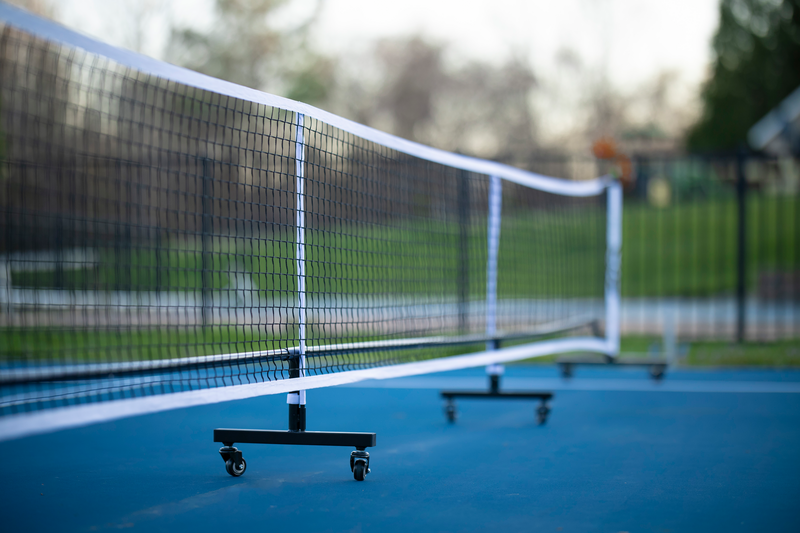It is a common misconception in pickleball, especially among beginners, that you can call for a replay for almost every mistake you make. Although there are many times a replay can be called in professional or officiated pickleball, there are actually only a few official times a redo is allowed in pickleball when you do not have a referee. So… which rules allow for a replay in rec pickleball?
Broken, cracked, degraded, or soft ball (Rule 11.E.)
- If a player suspects a ball is broken, cracked, degraded, or soft after the serve, play must continue until the end of the rally.
- If both teams agree that the ball was degraded, soft, broken, or cracked, players may replace the ball before the next serve occurs.
- ONLY in the case of a broken or cracked ball, if the players agree the cracked ball impacted the prior rally, a replay can occur. If the players do not agree that a cracked ball impacted the outcome of the prior rally, the prior rally stands as played.
Wrong score called (Rule 4.K.)
- If the server calls the wrong score, a player may stop play before the return of serve to correct the score. The rally shall then be replayed with the correct score called.
- After the return of serve, a player who stops play for a correction of score will have committed a fault and will lose the rally. If the wrong score is called and the player does not say anything before the return of serve, they can correct the score after the completion of the rally (before the next serve).
- A player who stops play after the serve for a score correction, when the score was called correctly, will have committed a fault and will lose the rally.
Player/position errors (Rule 4.B.9.a. & Rule 4.B.9.b.)
- If a player stops a rally in progress (before the return of serve only) to correctly identify a player/position error, the rally will be replayed.
- If a player stops a rally and incorrectly identifies a player/position error, it is a fault on the player who stopped the rally and they will lose the rally.
- If a player/position error is identified after the rally has played out, the rally shall stand and there will be no replay.
Serving replays (Rule 4.A.9.)
- Although there are many replays during the serve that are allowed for officiated play, there are very few for non-officiated play, which are:
- 4.A.5. Spin imparted.
- 4.A.6. Release not visible.
- The receiver will always determine serve faults.
- Both replays are relevant to both volley and drop serves and must be called before the return of serve.
“In non-officiated matches, if the receiver determines that manipulation of spin has been imparted prior to the serve, or the release of the ball is not visible, the receiver may call for a replay before the return of serve,” according to the USA Pickleball rules. “In non-officiated matches, the receiver has no authority to call for replays or faults for service motion violations.”
Pickleball hinder (Rule 8.C.)
- A hinder called in non-officiated play will result in a replay.
A hinder includes any transient element or occurrence not caused by a player that adversely impacts play (not including permanent objects). Examples can include: balls from another game, flying insects, foreign material, or players on another court that impacted a player’s ability to make a play on the ball.
Learn more about pickleball hinders here.
Foot faults (13.D.1.c.)
- Players may call non-volley zone and service foot faults on the opponent’s end of the court.
- If there is any disagreement among teams about the called foot fault, a replay shall occur.
Net rules (Rules 2.C.6. & 11.L.5.b.)
- For net systems with a horizontal bar or a center base, or both: Except on the serve, a replay will occur if the ball goes over the net (or the ball goes over the net, bounces), and:
- Hits the center base.
- Hits any part of the horizontal bar.
- The ball gets caught between the net and the horizontal bar.
- Hits a deflecting net.
- Except on the serve, a replay will occur if the ball goes over the net and hits a draping net on the ground.
Rules that specifically do not allow you to call a replay
- Line calls (Rule 6.C.3.): The opponent gets the benefit of the doubt on line calls made. Any ball that cannot be called “out” will be considered “in.” A player cannot claim a replay because the ball was not seen on a line call or there is uncertainty. Any uncertainty on a line call will be given to the opponent’s benefit.
- Serving faults (Rule 4.A.9.): In non-officiated matches, the receiver has no authority to call for replays or faults for service motion violations.
Keep in mind that recreational pickleball play is among you and who you are playing with. While you should always strive to stay within the rules, USA Pickleball does mention that players should “strive to cooperate when confronted with a situation not covered by the rulebook. Possible outcomes can be a replay, allowing the rally to stand, or in extreme cases, asking for a referee to resolve a dispute.”

